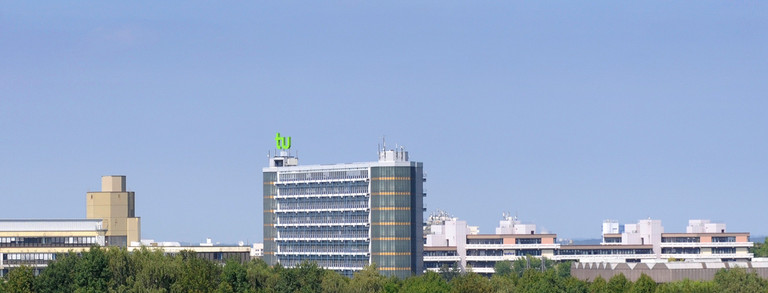Delivery Confirmation in Messenger Apps Reveals Recipient’s Location
- Top News
- Research

WhatsApp, Threema and Signal users are familiar with the following procedure: After sending a message, it is marked with a check mark. As soon as the message has reached its recipient, a second check mark appears as confirmation. Under certain conditions, however, the time span between the first check mark appearing and then the second one can be used to establish where the target cell phone is located, as a research team led by Dr. Theodor Schnitzler has discovered.
Data traffic analyzed by software
Dr. Schnitzler began his research work on this topic during his doctoral degree at Ruhr-Universität Bochum (RUB) and completed it at the Research Center Trustworthy Data Science and Security of the University Alliance Ruhr at TU Dortmund University. During a stay in Abu Dhabi, he and his international colleagues noticed that it took longer than usual until a Messenger message sent to Germany was marked as received with the second check mark. To study this phenomenon, they connected a smartphone to laptop software that sent a message every ten seconds to recipient cell phones in Germany, the Netherlands, Greece and the United Arab Emirates, and then analyzed the data traffic that occurred.

They discovered that there was a characteristic time span until the delivery confirmation arrived – depending on the destination country. With this information, they were able to determine in reverse and with an accuracy of 74% (Signal and WhatsApp) and 84% (Threema) in which of these countries the recipient device was located. In a second step, the researchers repeated the experiment on a local level and sent messages via the software to smartphones in various cities and towns in the Ruhr region. Here, too, they were able to measure a characteristic delivery time depending on the location and then determine the location of the recipient cell phone with an accuracy of over 90% in some cases. It is also possible to read very reliably from the data whether the receiving device is in a WLAN network or using mobile internet.
Profile of a person must be known
However, the data can only be interpreted with prior knowledge. "It is not possible to establish distances by measuring time," explains Schnitzler. In addition, messenger apps only send delivery confirmation if the recipient has saved the sender's cell phone number in their contacts, meaning that it is not possible to identify the previously unknown locations of just any cell phone number using this method. "But if you already know where the smartphone is usually located – for example because you know where a person lives, works or goes to the gym – you can use software to measure the characteristic time span until the delivery confirmation is sent and find out later whether the person concerned is in one of those places by sending them a message."
In certain situations, the method could nevertheless pose a safety risk, for example in the context of stalking.
Schnitzler and his co-researchers Katharina Kohls (Radboud University, Netherlands) and Evangelos Bitsikas and Christina Pöpper (New York University Abu Dhabi) will present their paper in spring 2023 at the prestigious Network and Distributed System Security (NDSS) Symposium in San Diego, USA. In it, they already suggest ways to eliminate the vulnerability: For example, the delivery confirmation could be given a random time delay in the range of a few seconds, which prevents the sender from establishing the recipient's location. Or the messenger services could provide their users with the option to switch off delivery confirmations entirely. Threema has already announced that it plans to check the issue.
Contact for inquiries:





![[Translate to English:] Partner Four hands are holding the green logo of TU Dortmund University](/storages/tu_website/_processed_/1/d/csm_Partner_Nicole_Rechmann_KW_670eba0154.jpg)




![[Translate to English:] Forschung An apparatus with tubes in a laboratory](/storages/tu_website/_processed_/0/c/csm_Forschung_Juergen_Huhn_4fa3153b51.jpg)
![[Translate to English:] Studium Five students are sitting in a lecture hall. They are talking to each other.](/storages/tu_website/_processed_/c/9/csm_Studium_FelixSchmale_dbdbfb0dd7.jpg)





